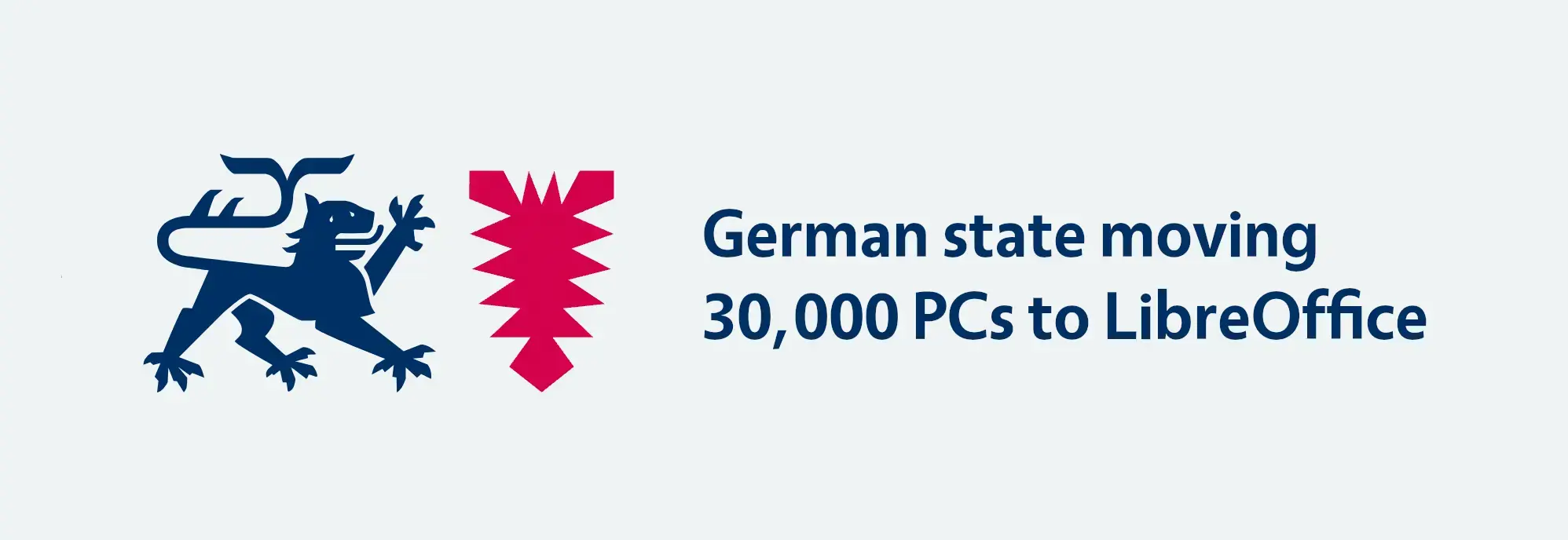Schleswig-Holstein, the northern German federal state, will be a digital pioneer region and the first German state to introduce a digitally sovereign IT workplace in its state administration. With a cabinet decision to introduce the open-source software LibreOffice as the standard office solution across the board, the government has given the go-ahead for the first step towards complete digital sovereignty in the state, with further steps to follow.
The some 30,000 public employees will replace Microsoft Office with LibreOffice, Windows with a yet-to-be-determined Linux desktop distro, and use Nextcloud, Open Xchange/Thunderbird, and the Univention Active Directory (AD) connector to replace Sharepoint and Exchange/Outlook. The state also intends to replace Telekom-Flexport by an Open Source solution.
“The use of open source software also benefits from improved IT security, cost-effectiveness, data protection, and seamless collaboration between different systems,” says Dirk Schrödter, digitalization minister for the German state of Schleswig-Holstein.
“We have no influence on the operating processes of [proprietary] solutions and the handling of data, including a possible outflow of data to third countries,” he adds.
“We have a great responsibility towards our citizens and companies to ensure that their data is kept safe with us, and we must ensure that we are always in control of the IT solutions we use and that we can act independently as a state.”
As The Document Foundation, the organization backing LibreOffice, put it, “The term digital sovereignty is very important here. If a public administration uses proprietary, closed software that can’t be studied or modified, it is very difficult to know what happens to users’ data.”



I recalled that too. It was like 15 years ago think. The whole thing was a disaster. Adoption was as much an issue as compatibility. Linux and LibreOffice has come along a long way since then. But so did MS. Not even google manages to compete with the level of integration and interoperability MS has. Also, being a state organized enterprise, you just know the transition phase is gonna be chaos incarnate. I just hope the top management is ready for the fight. I truly believe it’s worth it.
I don’t know if it is fair to call it a disaster. I don’t know enough from the inside, but I believe in retrospect the goal was maybe to ambitious or plain wrong.
They were attempting to port huge amounts of decades old Office macros to OpenOffice. That failed, but before the LiMux project they had already failed to migrate the same to a modern version of MS Office.
The goal for LiMux was to be a better Windows than the best Windows Microsoft would offer at the time. Literally impossible.
That combined with strong lobbying and users confused with a different UI and probably a lot of small day-to-day issues (which happens with any software, but can make an IT department look bad) made it politically hard to sustain an ‘experiment’.
The current IT lead of Munich, hired after migrating back to Microsoft, does not seem to be a Microsoft fan.